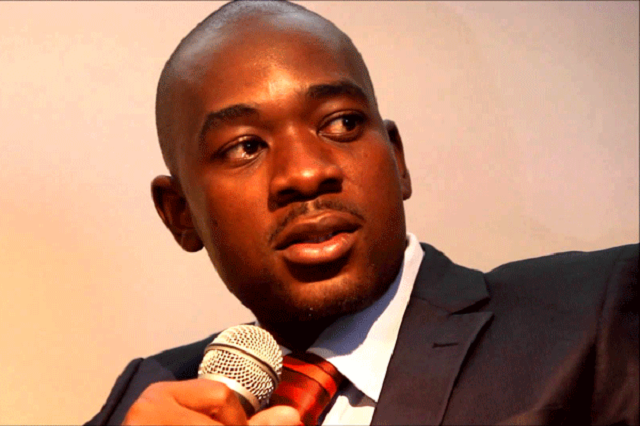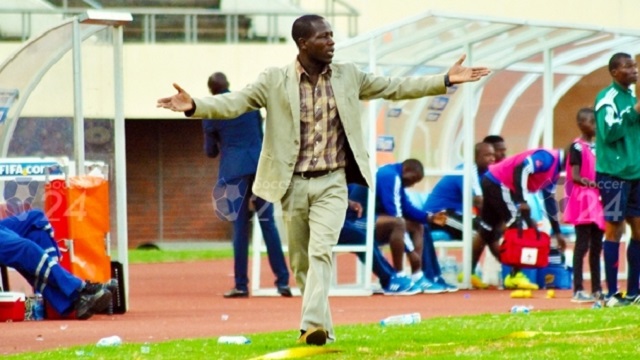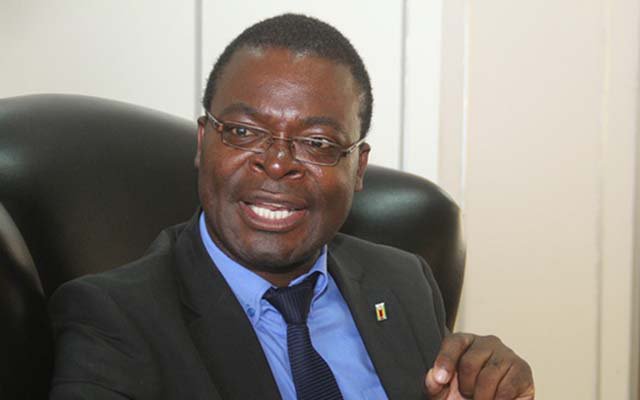Fidelity, excellence in leadership

Reason Wafawarova
Contrary to the general belief that our entitlement to the land mass we call Zimbabwe is by inheritance from ancestry, the truth about land ownership is that we have borrowed it from posterity, from generations yet to be born. What we owe is the debt of continuity, not the debt of history. Continuity is not owed to those that departed in the past, but to the unborn generations.
What terribly lacks in our politicians today is the sense of responsibility that respects the need to ensure that future generations are paid the debt of leadership responsibility. It is tempting to pride ourselves in historical facts, including the fact that we are entitled to our land and the natural resources therein because of who our ancestors were.
Political entitlement is based on who was there from 1963 when Zanu-PF was formed, or who was there in September 1999 when the MDC was formed.
Zanu-PF owes the liberation legacy to the unborn generations, not to those who departed; it owes independent nationalism to unborn generations, not to the cadres in its power ranks today. The MDC does not owe the social democracy ethos to its members of today, but to unborn generations.
Our ancestors owed this land to us, and equally we should be thinking more about our children, and their children’s children. We have intoxicated our collective conscience with the glories of the past, and many times we have done this at the expense of the time and effort we need to be investing into the present and the future.
The polarity we see between our political parties today is a result of our fixation with the past. ED Mnangagwa might want to be forward thinking in his endeavours to walk away from the Zanu-PF of the past leadership dispensation to a new Zanu-PF for unborn generations, but he cannot succeed in doing so with a nation fixated in the past.
There is this bitterness in our young generation of today that every single member of the older generation must be ashamed of. Our young people want to know if the opportunities availed to us the older generations when we were teenagers or young adults in the eighties are any worse than the ones our society is availing to the young adult of today. We knew then that the fruit of hard work in school was a decent job in the city, yet today our young people are getting too used to the concept of penury-stricken university graduates and rich illiterate criminals.
The natural order of inheritance is that the future comes with better opportunities than the past, yet our past provided for our generation opportunities far greater than our leadership has provided for our own children. We cannot pride ourselves in that.
Each generation carries with it the responsibility to create better life opportunities for the coming generation, it is presumed.
The reforms we have seen so far in Zanu-PF are an attempt to once again create in our youths a faith in the leadership of the outgoing generation. When we hear of a middle class economy in the next 12 years, we hear of an economy for the future, not an economy solely focused on correcting historical imbalances — important as that might be.
Legacy is not something we get buried with; it is not something we just entitle onto ourselves or dedicate to our departed ancestors.
Legacy is for future generations, and it is important that we all understand that the choices we make for ourselves today have a direct bearing on the future of the country we will live behind us.
Starting with myself as a writer, I have asked myself if the keenness to have my presence felt is the right motivation to carry out the art of political writing, or is it the science of it? When I started writing, I did so with the sole aim of making my absence felt after my inevitable departure (kusiya mbiri). It was just attention seeking, selfish to a good extent.
I have now come to realise how vacuous that kind of selfishness is, and I believe I have retraced my priorities significantly.
I now understand that I write for a cause, not for applause, to express not to impress, to benefit, not to deprive, to inform, not to mislead.
Knowing for a fact that I will surely die one of these approaching days, the desire burning in my heart is to create through my writing something that will not only last for posterity, but something that will give an unending benefit to future generations.
Francis Mupazviriwo started reading and following my work at age 12, and he has been inspired into an active writer in his 20s. Mentoring him into writing was inspiring and very rewarding for me, as it was with the likes of Tichaona Zindoga.
This imperative calls on all of us. It calls on those presiding over our politics, it calls on those presiding over matters of religion and faith, it calls on those of us appointed or anointed to make governance decisions, and it calls on each and every one of us carrying the title of a parent.
We must understand that there is just no escape —the next generation will have to pay for our violence and our intolerance. Our children and our children’s children will pay a heavy price for our selfishness and our recklessness.
When we slander, deride, and demean each other in the name of political contest the young people are watching us. We have seen two top politicians trading insults on air like primitive barbarians with the whole country listening. We have allowed iconic stupidity to prevail in our body politic because we have become as power hungry as to be stupid.
For how long are we going to act like the land we live in was only created for our lifespan? We can no longer perpetuate this behaviour of avoiding the futuristic look into the huge debt that we owe to generations to come. We have to start to be exemplary in deed and conduct.
We have obsessed ourselves with power politics, and our children must not be witnessing a departing generation whose sole preoccupation is power. This is the narrative in our politics across the political divide today.
The greatest election we can ever win is for the vote of the unborn child. Today we preoccupy ourselves with the vote of today’s voter registered in the voters’ roll. I listen with a sense of great concern to the campaign rhetoric from our leading politicians. The utterances make me feel like we are now stuck in power politics, and even power for the sake of it.
Someone was recently in London talking about “reigning” us, and the next one talks about “ruling” us. We Zimbabweans, like all other civilised people of this world deserve to be governed, or even administered, not reigned, or ruled. We are citizens, not subjects.
We do not owe Zimbabwe to ourselves, and we do not owe it to our departed gallant heroes of the liberation struggle either. What we owe to these heroes is a sense of responsibility to create for the unborn child a better Zimbabwe, and that is what they themselves did for us, hoping that they were doing it for many more generations to come. Our ancestors who first set foot in today’s Zimbabwe had a vision. They wanted a better future for all of us.
We have collectively counted our land as a crown for the death of Nehanda and Kaguvi; not because they are the only two people to be killed for fighting for our emancipation, but because they pioneered the defence of this land on behalf of unborn generations. They were killed in defence of the future. They are heroic ancestors who left us an ideological legacy of excellence, a legacy of social justice, economic hope, political unity, and spiritual strength to defend the fibre, fabric and vein of our nationhood.
Leaders worth the name are legacy oriented, and they want to make an impact after death, hopefully a good one. A good legacy is only possible when we understand that relationships are more important than expediency, even in politics.
We must discourage as intolerable the politician that derides and alienates opponents for the sole purpose of expediency. It is unacceptable for a politician to go and address a campaign rally armed with tools of hate and derision for opponents. Campaigning must not be the art of demonising opponents in the hope that voters will believe the slander and desert them, but an art of attracting the voter to oneself by way of offering a more appealing alternative to the status quo.
Even ideology plays second fiddle to relationships, and that is why the respect for one another as a people must supersede political affiliation.
No one can ever become a lesser being because of political preference, or because of political opinion. The ultimate happiness of Zimbabweans is the only measure we can have for our political success.
Before one leaves a legacy, they have to live that legacy. Nothing beats honest living in life, and for a leader honesty must always be a mandatory requisite.
A good leader will always cherish the success of those he leads.
It is incompetent for a writer like myself to imagine there is a shared commitment in our leadership for the attainment of collective happiness for all Zimbabweans. The corruption crippling our national fabric and the patronage in our power corridors do not speak of a leadership that cares about the word commitment.
The polarity and intolerance within our political parties does not speak of a people committed to the collective success of our nation. Cronyism has become superior to nationalism, and that is why we have candidate imposition across the political divide.
Good leadership comes with an obligation to live the talk. We have no shortage of eloquent rhetoricians in our politics, and most of the time these people impress us with convincing articulation of issues. How sweet it is when we listen to the inspiring voice of the politician over matters of patriotism, sovereignty, empowerment, and even justice.
These days we have a futuristic speaking eloquent rhetorician who freely promises anything imaginable, and it has turned out that in election times nothing can be sweeter than lies spoken at a rally — if the fervent social media defence to some of these utterances is anything to go by.
We have seen succession wars across the two main political parties in the country, and they have been wars, not contests. Succession is a key responsibility of leadership. But there is a difference between succession and power fights. Succession is about continuity, and power fights are about leadership roles, not responsibility.
Every leader leaves his or her own legacy, and we are never going to get another Robert Mugabe again, regardless of however much we may want to do so; or how much we may wish never again. But of course the Mugabe legacy can be carried on. But there have to be grounds for a legacy to be perpetuated; otherwise it has to be abandoned.
Firstly, only a legacy of achievement is worthy maintaining, and we are aware of the ground-breaking achievements the country has made since breaking from the yoke of colonialism — mass education, infrastructural development, health, and of course the agrarian reforms. We are obviously not oblivious to the challenges of recent years.
Secondly, there must be success, and this is not success measured by the amount of power in the leader, but by how much empowered the followers of that leader have become.
Thirdly, there must be significance, or the relevance for developing great leaders in the mould of the great predecessor. Without such significance, there is no point choosing someone to carry over a legacy of no relevance or significance.
Lastly, there must be a legacy in place for one to be able to place leaders who can do great things without the top leader.
There has to be an inspiring legacy left by Morgan Tsvangirai for the MDC, just like there is for Zanu-PF an inspiring legacy left by the likes of Chairman Herbert Chitepo, Joshua Nkomo, and of course Robert Mugabe.
Regardless of our various problems with the man, it is generally agreed across the political divide that former president Robert Mugabe set a bar too high for would-be emulators. Obviously a legacy with no inspiring emulators faces the danger of discontinuity, and that must be worrisome.
In leadership timing is everything. Good leadership and good timing will always go hand in hand. It is important that a leader understands the situation at hand before choosing the timing of his actions. It is absolutely vital that maturity supersede one’s ego. Once the motive is wrong, it becomes hard to get the cause right.
Nelson Chamisa’s timing and motive for taking over the MDC-T leadership has been questioned, and that is exactly why he faces the challenge of justifying his cause, not least among his own colleagues.
Good leadership is about confidence. People follow leaders who know what must be done. Chamisa does a good job of preaching his own confidence.
Of course leadership is about experience, and that is why leaders with no experience need to get wisdom from those with experience.
For people to trust the Government, Zanu-PF must simply show momentum, and there is no substitute for that. The cash crisis must go, and go immediately.
Zanu-PF must use its vast experience to show preparedness for a better Zimbabwe from the Mugabe dispensation.
Goals must not only be achievable, but must be achieved. Electoral promises are not made only for the purpose of winning elections, but are to be pursued and fulfilled.
Zimbabwe we are one and together we will overcome. It is homeland or death!!
*Reason Wafawarova is a political writer based in Sydney, Australia










Comments